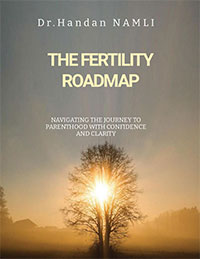When you're trying to conceive, you may already be focusing on essential aspects like diet and exercise, but it's also crucial to consider the role of harmful substances. Smoking, excessive alcohol consumption, and recreational drug use can significantly affect both male and female fertility. Moreover, external environmental toxins such as pesticides and heavy metals can also impact your reproductive health.
In this article, we will explore the negative effects of these substances on fertility and provide tips on how to avoid them. By taking these steps, you’re not only boosting your chances of conception but also creating a healthier environment for your future baby.
How Smoking Affects Fertility
Smoking is one of the most harmful habits for reproductive health in both men and women. Studies have shown that smoking affects hormone regulation, reduces egg and sperm quality, and can even cause long-term damage to the reproductive organs.
Effects of Smoking on Female Fertility
For women, smoking accelerates ovarian aging. Research has found that women who smoke may experience earlier menopause and have a harder time conceiving. Smoking reduces the number of eggs in the ovaries and impairs the overall quality of the eggs. This means that even if conception occurs, the risk of miscarriage is higher.
- Ovarian Reserve: Smoking significantly reduces the ovarian reserve, which refers to the quantity and quality of eggs remaining in a woman's ovaries. Lower egg quality can make conception more difficult, and the chances of successful fertilization are reduced.
Effects of Smoking on Male Fertility
For men, the story is similar. Smoking is directly linked to reduced sperm quality. It leads to decreased sperm count, reduced motility, and increased DNA damage in sperm cells. These factors are all crucial for fertilization and conception.
- Sperm Count and Motility: Smokers generally have a lower sperm count and reduced sperm motility. Both of these factors affect the sperm's ability to reach and fertilize an egg.
Alcohol and Its Impact on Fertility
Alcohol consumption, especially in excess, can disrupt hormone levels, leading to fertility challenges in both men and women. Here’s how:
Effects of Alcohol on Female Fertility
For women, alcohol can cause hormonal imbalances, leading to irregular ovulation. Excessive drinking may lower levels of estrogen and progesterone, both of which are essential for a regular menstrual cycle and successful conception.
- Ovulation and Hormones: Alcohol impacts your ability to ovulate regularly by affecting the balance of reproductive hormones.
Effects of Alcohol on Male Fertility
In men, excessive alcohol intake can lower testosterone levels, reducing sperm production. Additionally, alcohol is known to decrease sperm quality and increase the chances of sperm DNA damage, which can affect a couple’s chances of conception.
- Sperm Production: High alcohol intake disrupts the production of healthy sperm, making it harder for couples to conceive naturally.
Recreational Drug Use and Fertility
Drugs such as marijuana, cocaine, and opioids are known to have detrimental effects on fertility. Both short-term and long-term use can impair reproductive health.
Effects on Female Fertility
Recreational drugs can disrupt normal ovulation, making it more difficult to conceive. In particular, marijuana is known to affect the menstrual cycle, causing ovulation irregularities.
Effects on Male Fertility
In men, drug use significantly lowers sperm quality and count. Drugs like marijuana can reduce sperm motility, while cocaine use is linked to a decrease in sperm production. These issues make it much harder to achieve pregnancy naturally.
Environmental Toxins and Fertility
Beyond harmful substances like smoking, alcohol, and drugs, there are environmental factors that can reduce fertility as well. Exposure to pesticides, heavy metals, and other chemicals found in household products can affect reproductive health.
Pesticides
Studies have shown that exposure to pesticides, whether through food or water, can negatively affect fertility in both men and women. In men, it can reduce sperm count and motility, while in women, it can interfere with hormonal balance and disrupt ovulation.
- Minimize Exposure: One way to reduce exposure to harmful pesticides is by choosing organic produce whenever possible and using fewer chemical-based products in the home.
Heavy Metals
Heavy metals such as lead and mercury, commonly found in industrial settings or even household items, can harm fertility. These metals accumulate in the body over time and interfere with the reproductive system, impacting both sperm and egg quality.
- Avoid Contaminated Environments: Reducing exposure to these substances is essential for protecting reproductive health. Avoid contaminated environments and choose products that are free from harmful chemicals.
Limiting Caffeine for Fertility
Although not as harmful as smoking or alcohol, high caffeine intake can also interfere with fertility. Research suggests that women who consume large amounts of caffeine may experience delayed conception. It’s recommended to limit caffeine intake to no more than 200 mg per day (roughly one 12-ounce cup of coffee) to optimize fertility.
Creating a Healthier Environment for Fertility
If you're trying to conceive, eliminating harmful substances and limiting exposure to toxins is one of the easiest ways to improve fertility naturally. By cutting out smoking, reducing alcohol intake, avoiding recreational drugs, and being mindful of environmental exposures, you’re creating the healthiest possible environment for both you and your future baby.
Hashtags:
#FertilityHealth #BoostFertility #AvoidSmokingForFertility #AlcoholAndFertility #EnvironmentalToxinsAndFertility #HealthyConception #FertilityJourney #WomensHealth #MensHealth #NaturalConception #FertilityTips
SEO Keywords:
avoid smoking for fertility, alcohol and fertility, impact of drugs on fertility, environmental toxins and fertility, smoking and fertility, caffeine and fertility, pesticides and fertility, heavy metals and fertility, ovulation and toxins, sperm quality and smoking

